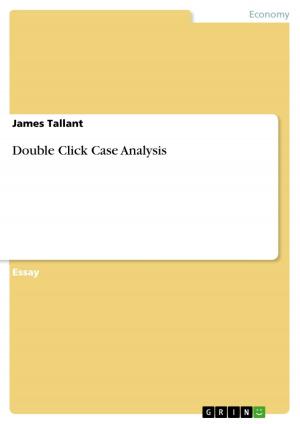| Author: | Michael Glitzner | ISBN: | 9783638784320 |
| Publisher: | GRIN Publishing | Publication: | March 19, 2007 |
| Imprint: | GRIN Publishing | Language: | English |
| Author: | Michael Glitzner |
| ISBN: | 9783638784320 |
| Publisher: | GRIN Publishing |
| Publication: | March 19, 2007 |
| Imprint: | GRIN Publishing |
| Language: | English |
Seminar paper from the year 2006 in the subject Business economics - Accounting and Taxes, grade: A+, The University of New Mexico (Anderson School of Management), course: Cost Accounting, 8 entries in the bibliography, language: English, abstract: During history a lot of different countries gave their contribution to the development of accounting all over the world. However Cost Accounting headed into different directions in the Anglo-Saxon area like United Kingdom, Denmark, United States in comparison to the so called Continental area including countries like France, Germany, Austria or Japan. What are the reasons for these differences? Most of the European countries have a system of law that is based on Roman jus civile, where rules are linked to ideas of justice and morality, and are therefore codified. This is for example also the case for company accounting in Germany and Austria, where it is to a large extent a branch of 'code of commercial law' (old 'Handelsgesetzbuch', new 'Unternehmensgesetzbuch'). By contrast, a lot of other countries like the US use a version of the English based common law instead, that is widely interpreted by courts which build up large amounts of case law to supplement the statutes. (Alexander and Nobes, 1994: 67-68) In the United State the major amount of capital is provided by large numbers of private investors, contrary to the German-speaking countries, where the banks are important owners of companies as well as providers of debt finance (Alexander and Nobes, 1994: 68). Those different situations in capital markets can explain why 'protection of creditors' ('Gläubigerschutz') is one of the central principals of accounting in Germany and Austria with the objective of keeping and securing capital, whereas 'true and fair' is more important in the US to reflect the current economic situation to the public (Narat, 2003: 4).
Seminar paper from the year 2006 in the subject Business economics - Accounting and Taxes, grade: A+, The University of New Mexico (Anderson School of Management), course: Cost Accounting, 8 entries in the bibliography, language: English, abstract: During history a lot of different countries gave their contribution to the development of accounting all over the world. However Cost Accounting headed into different directions in the Anglo-Saxon area like United Kingdom, Denmark, United States in comparison to the so called Continental area including countries like France, Germany, Austria or Japan. What are the reasons for these differences? Most of the European countries have a system of law that is based on Roman jus civile, where rules are linked to ideas of justice and morality, and are therefore codified. This is for example also the case for company accounting in Germany and Austria, where it is to a large extent a branch of 'code of commercial law' (old 'Handelsgesetzbuch', new 'Unternehmensgesetzbuch'). By contrast, a lot of other countries like the US use a version of the English based common law instead, that is widely interpreted by courts which build up large amounts of case law to supplement the statutes. (Alexander and Nobes, 1994: 67-68) In the United State the major amount of capital is provided by large numbers of private investors, contrary to the German-speaking countries, where the banks are important owners of companies as well as providers of debt finance (Alexander and Nobes, 1994: 68). Those different situations in capital markets can explain why 'protection of creditors' ('Gläubigerschutz') is one of the central principals of accounting in Germany and Austria with the objective of keeping and securing capital, whereas 'true and fair' is more important in the US to reflect the current economic situation to the public (Narat, 2003: 4).















